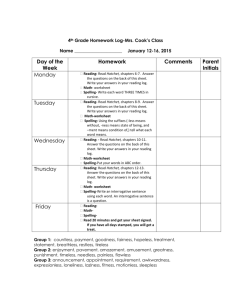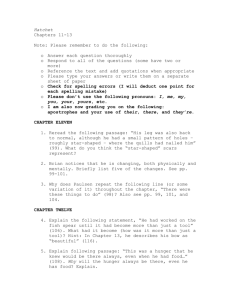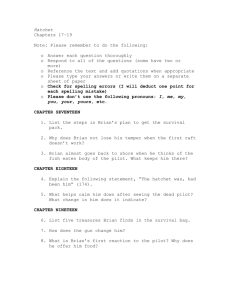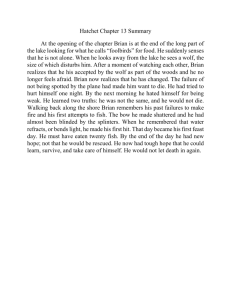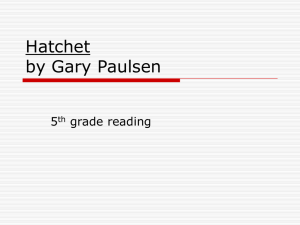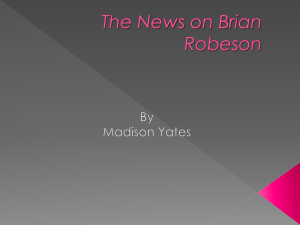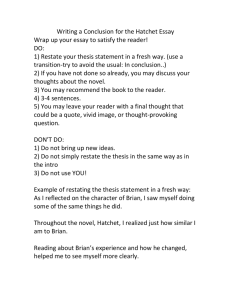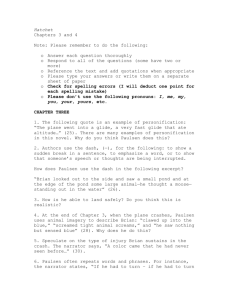book club- hatchet homework
advertisement
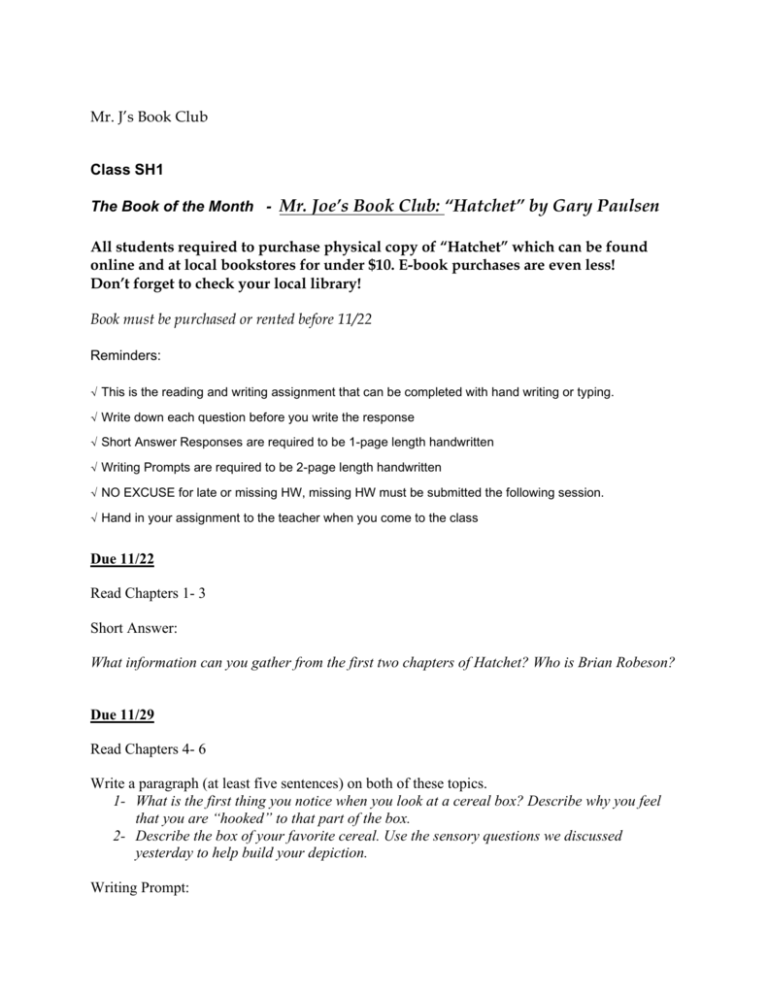
Mr. J’s Book Club Class SH1 The Book of the Month - Mr. Joe’s Book Club: “Hatchet” by Gary Paulsen All students required to purchase physical copy of “Hatchet” which can be found online and at local bookstores for under $10. E-book purchases are even less! Don’t forget to check your local library! Book must be purchased or rented before 11/22 Reminders: √ This is the reading and writing assignment that can be completed with hand writing or typing. √ Write down each question before you write the response √ Short Answer Responses are required to be 1-page length handwritten √ Writing Prompts are required to be 2-page length handwritten √ NO EXCUSE for late or missing HW, missing HW must be submitted the following session. √ Hand in your assignment to the teacher when you come to the class Due 11/22 Read Chapters 1- 3 Short Answer: What information can you gather from the first two chapters of Hatchet? Who is Brian Robeson? Due 11/29 Read Chapters 4- 6 Write a paragraph (at least five sentences) on both of these topics. 1- What is the first thing you notice when you look at a cereal box? Describe why you feel that you are “hooked” to that part of the box. 2- Describe the box of your favorite cereal. Use the sensory questions we discussed yesterday to help build your depiction. Writing Prompt: Describe how a particular story’s or drama’s plot unfolds in a series of episodes as well as how */the characters respond or change as the plot moves towards a resolution. Due 12/6 Read Chapters 7- 9 Short Answer: How do individual sentences make a difference in the chapter? Writing Prompt: Analyze how a particular sentence, chapter, scene, or stanza fits into the overall structure of a text and contributes to the development of the theme, setting, or plot. Due 12/13 Read Chapters 10- 12 Writing Prompt: How does one chapter influence the entire book? What parts of a chapter are essential to the comprehension of that chapter? Due 12/20 Read Chapter 13 Writing Prompt: A whole lot happens between the end of Chapter 12 (when the rescue plane flies overhead) and the beginning of Chapter 13 (a full forty-two days later) when we see Brian hunting for foolbirds. Why do you think Paulsen chose to skip over this part of the story and just tell us about it after the fact? How does his decision affect your understanding of Brian? How would the book have been different if these events had been related in full as they happened? Due 1/3 Read Chapters 14-16 Writing Prompt: Although the situation with his parents is not ideal, Brian seems to come from a reasonably welloff family. Both of his parents have good jobs, and the background memories presented in the book suggest that he's never before gone hungry or really wanted for much of anything. How do you think the book might have been different if Brian had come from a less advantaged background? If, for example, Brian's family had been homeless, or had had to struggle to put food on the table? How might Brian's understanding of nature, and of the contrasts between the woods and the city, have been different? Due 1/10 Read Chapters 17-19 Writing Prompt: Imagine how the story might have been different if Brian had found himself stranded in the Florida Everglades. What if the plane had crashed in the rainforest? Or the desert? How would Brian's survival challenges have been different? Would he have had to adapt in different ways? Due 1/17 Writing Prompt: The story of Hatchet is Brian's story. From the first page to the last, we are concerned about what Brian thinks, how Brian feels, and what Brian experiences. Given this, why do you think Paulsen chose to write the story in the third person (that is, from the point of view of an outside narrative voice), rather than in first person, with Brian telling us the story directly? Does the book gain (or lose) anything from this decision? Due 1/24 Short Answer: Why did Gary Paulsen title this novel Hatchet? Writing Prompt: Did Hatchet change the way you feel about nature, or about wilderness places? After reading the book, do you feel more inclined to spend time out in the natural world? Less inclined? What are the most important lessons Brian learns about the natural world? How does his time in the wilderness affect his attitude toward the land and the animals?
